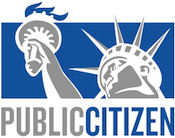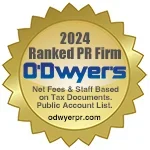 |
Major League Baseball has moved its 2021 All-Star Game from Atlanta to Denver to protest Georgia’s decision to adopt measures that may suppress voter turnout.
Atlanta-based Coca-Cola, Delta Air Lines and Home Depot are in the spotlight in the aftermath of Georgia’s decision. They are pressured to speak out against the injustice.
Corporate America, though, has a history of backing efforts to suppress vote, according to a report by Public Citizen.
Released April 5, the report found that US companies donated $50M since 2015 to support state lawmakers pushing voter suppression bills. Trade groups kicked in another $36M.
AT&T ranks No. 1 on Public Citizen’s list of top contributors from 2015 to 2020. Ma Bell phoned in $810,915 to lawmakers.
Rounding out the Top Ten are: Altria/Philip Morris ($678,700), Comcast Corp./NBC Universal ($439,700), UnitedHealth Group ($411,200), Walmart ($376,617), State Farm ($315,370), Pfizer ($308,085), BNSF Railway ($300,085) and Farmers Insurance ($293,000).
Coca-Cola gave $133,700 during the five-year period.
Public Citizen found that 81 percent of Fortune 100 companies gave $7.7M to lawmakers supporting voter suppression form 2015 to 2020,
It found that while 123 companies and trade groups altered their political giving after the Jan. 6 Capitol Hill riot, such as suspending donations to the 147 Republican Members of Congress who voted to block the certification of Joe Biden as president, three-quarters of them contributed to state lawmakers backing voter suppression bills.
There are about 250 bills in state houses that would make voting more difficult in the next election. Those measures disproportionately disenfranchise Black Americans and other groups who typically support Democrats, according to Public Citizen.
The "Corporate Sponsors of Voter Suppression" report may cause companies beyond Georgia a lot of PR grief.
Jamie’s bakery is open for business… JPMorgan Chase chief Jamie Dimon’s annual letter to shareholders is a must-read, along the same lines as Berkshire-Hathaway CEO Warren Buffett’s missive to his stockholders.
In this year’s gem, Dimon talks about the importance of JPMorgan Chase acting as a responsible community citizen, just like the local bakery.
While the “Main Street” baker sweeps the sidewalk outside her storefront and donates surplus food at the end of the day to homeless shelters, JPMorgan Chase lends to and supports local businesses, helps neighbors with banking and donates to local charities, according to Dimon.
“We take great pride in being a responsible citizen at the local level—just like the local bakery,” wrote Dimon, who may be kneading rather than lending dough during his next life.
The CEO also takes on America’s penchant for clouding debate with unfair thinking and arguing. Americans present arguments as if solutions were binary and seek out convenient and simplistic answers, which are often wrong. “We should try to find common ground with parts of someone’s argument as opposed to rejecting the entirety of it offhand,” he wrote.
The JPMorgan Chase boss is against assigning motives to people in a bid to denigrate the person to win an argument, and creating strawmen to represent opponents.
He took aim at media hype and people’s willingness to be weaponized. “The urgency of today and the hyperactive and frequently hysterical focus on irrelevant issues crowd out thoughtful strategy and policy for tomorrow,” wrote Dimon.
Dimon is surprised at how easily people allow themselves to get completely riled up—though he admits it sometimes happens to him.
“And when politics and media meet, we are whipsawed by false arguments of fanatics, the certitude of ideologues and cycles of intolerance. We all should not be drawn into this vortex," wrote the sage of Wall Street.


 The NBA, which promotes legalized gambling 24/7, seems more than hypocritical for banning player for placing bets... Diocese of Brooklyn promises to issue press release the next time one of its priests is charged with sexual abuse... Truth Social aspires to be one of Donald Trump's iconic American brands, just like Trump University or Trump Steaks or Trump Ice Cubes.
The NBA, which promotes legalized gambling 24/7, seems more than hypocritical for banning player for placing bets... Diocese of Brooklyn promises to issue press release the next time one of its priests is charged with sexual abuse... Truth Social aspires to be one of Donald Trump's iconic American brands, just like Trump University or Trump Steaks or Trump Ice Cubes. Publicis Groupe CEO Arthur Sadoun puts competition on notice... Macy's throws in the towel as it appoints two directors nominated by its unwanted suitor... The Profile in Wimpery Award goes to the Ford Presidential Foundation for stiffing American hero and former Wyoming Congresswoman Liz Cheney.
Publicis Groupe CEO Arthur Sadoun puts competition on notice... Macy's throws in the towel as it appoints two directors nominated by its unwanted suitor... The Profile in Wimpery Award goes to the Ford Presidential Foundation for stiffing American hero and former Wyoming Congresswoman Liz Cheney. JPMorgan Chase chief Jamie Dimon's "letter to shareholders" is a must-read for PR people and others interested in fixing America and living up to its potential... Get ready for the PPE shortage when the next pandemic hits... Nixing Netanyahu. Gaza carnage turns US opinion against Israel's prime minister.
JPMorgan Chase chief Jamie Dimon's "letter to shareholders" is a must-read for PR people and others interested in fixing America and living up to its potential... Get ready for the PPE shortage when the next pandemic hits... Nixing Netanyahu. Gaza carnage turns US opinion against Israel's prime minister. Trump Media & Technology Group sees Elon Musk's X as an option for those who want the free expression promised by Truth Social but without Donald Trump, owner of 57.3 percent of TMTG... Chalk one up for "anti-woke warrior" governor Greg Abbott as University of Texas lays off 60 DEI-related staffers... Five percent of Americans see the US as its own worst enemy, according to Gallup.
Trump Media & Technology Group sees Elon Musk's X as an option for those who want the free expression promised by Truth Social but without Donald Trump, owner of 57.3 percent of TMTG... Chalk one up for "anti-woke warrior" governor Greg Abbott as University of Texas lays off 60 DEI-related staffers... Five percent of Americans see the US as its own worst enemy, according to Gallup. Nine of the Top 100 firms that participated in O'Dwyer's rankings last year apparently threw in the towel for the 2024 scorecard. Seven other firms also went AWOL.
Nine of the Top 100 firms that participated in O'Dwyer's rankings last year apparently threw in the towel for the 2024 scorecard. Seven other firms also went AWOL.


 Have a comment? Send it to
Have a comment? Send it to 
Apr. 8, 2021, by Joe Honick
It's hard to know whom to blame or hold responsible for the realities suggested in your article...in both ends of the two-part story. Long forgotten, through effective PR strategies, are the true stories of American corporate, financial, industrial and millionaire support, cooperation and profits from working with the rise of the Hitler regime in the 1930s. There is not space enough here to recite the volume of it all...or how these elements, again through effective PR, have returned to the marketplace and hazy consumer memories. Those involved in both eras include some of our currently most respected if not most powerful firms and people.
Jamie Dimon is no less a creature of times, NOT THE NAZI PART, but of other situations and has come out smiling, courtesy of the same public relations jobs and his own smarts. His whining about being "whip-sawed" sounds so Trumpian that it will probably work.
Sadly, too often, damned effective PR efforts, called "Crisis Management" has managed to use a combination of hazy public attention and memory and slipshod media work to clean up clients' mess. Remember the trillion dollar lawsuit by 9/11 survivor families against the Saudis, tied up by at least three US Presidents?